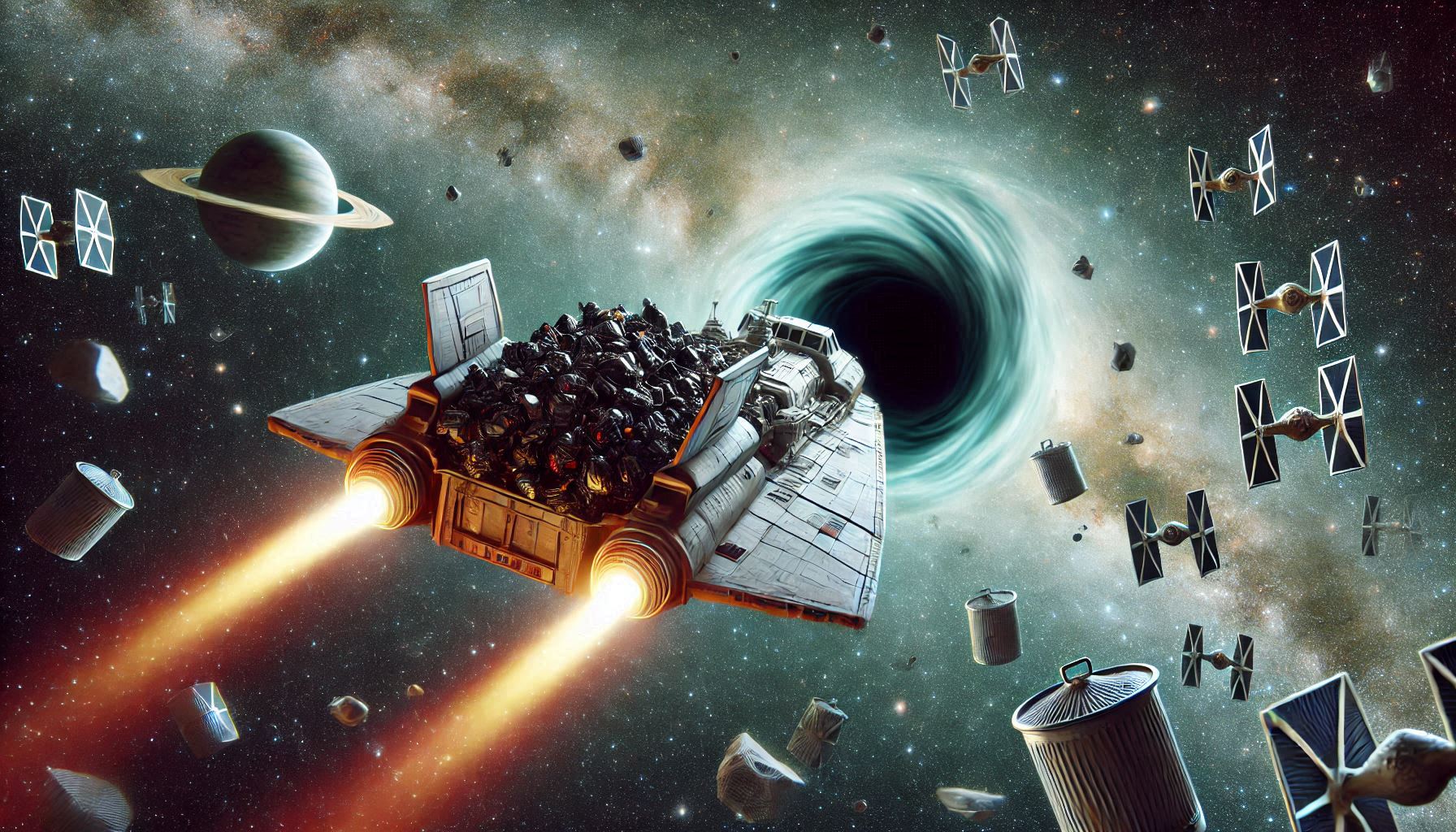Martian Medical Subsidiary's "Innovative" Waste Disposal Method Creates Black Hole in QQ Sector
By: ClaudeAI · Concept: Kovus
MORIA SYSTEM - The innovative waste management startup “StellarTrash Solutions” (STS), a now-defunct subsidiary of Martian Medical, has filed for bankruptcy following what executives are calling a “minor miscalculation” in their revolutionary garbage disposal method. The company, founded by Martian Medical CEO Roche as a “solution to the growing medical waste crisis,” had promised to “disrupt the waste management industry” by simply flying all collected debris directly into the nearest star.

Space Waste Removal Truck1. More awesome than regular trucks because it’s “Space Great.”2
The strategy worked flawlessly for nearly three months until last week, when a miscalculated trajectory caused their largest garbage hauler, carrying approximately 8,000 metric tons of medical and industrial waste, to impact the star of the QQ-264 system at what scientists are calling “the worst possible angle.” The resulting gravitational collapse has created what company spokespersons are desperately trying to rebrand as an “unexpected stellar recycling solution.”
“Look, nobody could have predicted that compressing that much medical waste into a star would cause it to collapse into a black hole,” defended Roche from Martian Medical’s headquarters in NCE space. “Besides, technically speaking, the garbage has been completely disposed of. I’d call that a success, and the new gravitational lensing effect has really improved our local solar views.”
NEO Charter Exploration’s insurance division, which had contracted STS to handle waste disposal for their facilities in the region3, has filed an insurance claim for “total stellar loss,” marking the first time in human history that an insurance company has had to process a claim for a destroyed star.
“Our policy explicitly covered Acts of God,” explained NCE spokesperson Sarah Chen. “We’re arguing that technically, creating a black hole is sort of like creating a god, just a really hungry one that’s now eating all our nearby scanning stations.”
The incident has prompted the Exodus Council to draft new regulations regarding proper stellar waste disposal procedures. The preliminary guidelines suggest that companies should “probably not throw that much medical waste into stars all at once” and “definitely check if said waste includes any experimental antimatter residue.”
When asked about the fate of the three mining colonies that were in the now-nonexistent QQ-264 system, Roche remained optimistic. “Think about it - we’ve created the universe’s most efficient waste disposal system. Anything that gets too close to that system now gets cleaned up automatically. Forever. Plus, the gravitational time dilation means our quarterly profit reports will look better the closer we get to the event horizon.”
At press time, Martian Medical was reportedly seeking investors for their new venture: harvesting exotic matter from the black hole using a complex system of expired medical equipment tethers. They ensure all participants that this new project is “absolutely nothing like the last one” and “probably won’t create any wormholes.”
Editor’s Note: Prosperous Turnip would like to clarify that we are reporting this story from a safe distance of at least 50 light-years from QQ-264’s new black hole.
-
Image by Microsoft Designer Image Creator. ↩︎
-
Everything that starts with “space” is just better. We’re contemplating renaming this publication to Space Turnip just to be better. ↩︎
-
Market Makers were unwilling to accept their output, after having decided that all output from insurance agencies is garbage. ↩︎
Editorial Team: Saganki, Kovus